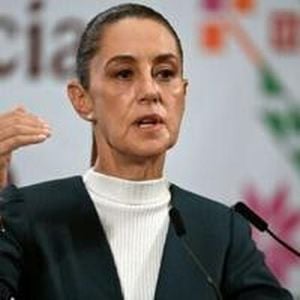Tensions between the United States and Colombia escalated sharply on January 26, 2024, after Colombian President Gustavo Petro announced his refusal to allow U.S. deportation flights to land on Colombian soil. This controversial decision ignited reprisals from U.S. President Donald Trump, who asserted the rejection jeopardized U.S. national security.
President Petro expressed his concerns on social media platform X, stating, "The US cannot treat Colombian migrants like criminals…the US should establish a protocol of dignified treatment of migrants before we receive them." His emphatic refusal to accept two U.S. military aircraft carrying deported Colombian nationals was grounded in his administration's commitment to humane treatment for all migrants.
Following Petro's announcement, Trump took to his Truth Social platform to issue several retaliatory measures against Colombia. He imposed emergency tariffs starting at 25% on Colombian goods entering the U.S., with plans to escalate this to 50% within the week. Trump also announced additional sanctions, including travel bans and immediate visa revocations for Colombian government officials and associates, claiming these actions were necessary as Colombia had "jeopardised" U.S. national security.
"These measures are just the beginning," Trump remarked, indicating his administration's determination to respond decisively to Colombia's stance. The escalation reflects not only the immediate fallout from the deportation flight incident but also the broader theme of immigration policy central to Trump’s administration.
Petro, who has become increasingly vocal about migrant rights, condemned the U.S. treatment of deportees as reminiscent of criminal proceedings. He underscored, "A migrant is not a criminal and must be treated with the dignity..." His response highlighted his administration's respect for human rights, showcasing Colombia's historical role as one of the largest recipients of deportation flights.
Colombia had accepted as many as 475 deportation flights from the United States between 2020 and 2024. Petro’s rejection followed reports of U.S. migrant deportations involving physical restraints, with videos surfacing of deportees being treated harshly upon their return. He noted, "I will never allow Colombians to be brought in handcuffs on flights," emphasizing the need for respect and dignity throughout the repatriation process.
Reacting to Trump’s threats, Petro announced his own measures, stating he would impose a 25% tariff on U.S. goods entering Colombia as retaliation. "Your blockade does not scare me, because Colombia… from now on faces the whole world, with open arms," he stated, asserting Colombia's commitment to governing its approach to international relationships.
The economic stakes are high, with U.S. imports from Colombia valued at nearly $24.8 billion in 2022 alone, primarily driven by crude petroleum, coffee, and cut flowers. Trump's tariffs could significantly disrupt trade patterns, but also spur Colombia to diversify its export markets beyond the U.S.
Further complicatory dynamics arose as Secretary of State Marco Rubio asserted the U.S. would not be “taken advantage of,” emphasizing the responsibility of nations to accept their citizens. He noted, "America will no longer be lied to nor taken advantage of"—a sentiment aligning closely with Trump’s hard-line immigration stance.
The spat over deportation flights reflects broader relational tensions between the U.S. and several Latin American countries, with Mexico recently opting out of hosting similar flights. Colombia's refusal marks the second significant rejection of U.S. military deportation flights by Latin American nations, posing referrals for new diplomatic frameworks moving forward.
Petro's emphasis on dignity and the treatment of migrants has gained traction amid increasing conflicts between U.S.-led deportation strategies and the human rights concerns raised by Latin American leaders. Observers note this could lead to shifts within international relations and trade agreements as countries seek to respond to the changing demands of their governments and constituents.
Looking forward, analysts predict potential negotiations between the two nations over human rights policies and economic sanctions, balanced against Trump’s broader immigration agenda. How both countries navigate the diplomatic and economic fallout will be closely monitored, potentially reshaping Central and South American relations with the United States.
Petro concluded his response to Trump's measures with defiance, asserting, "We are peoples of the winds, the mountains, the Caribbean Sea and of freedom. You don’t like our freedom, fine. I do not shake hands with white slave owners... I’ll go elsewhere." This declaration encapsulated his vision of Colombia’s independent stance on international affairs, promising to advocate for the dignity and humanity of Colombians, and emphasizing the complexity of relations between almighty economic powers and sovereign nations.



